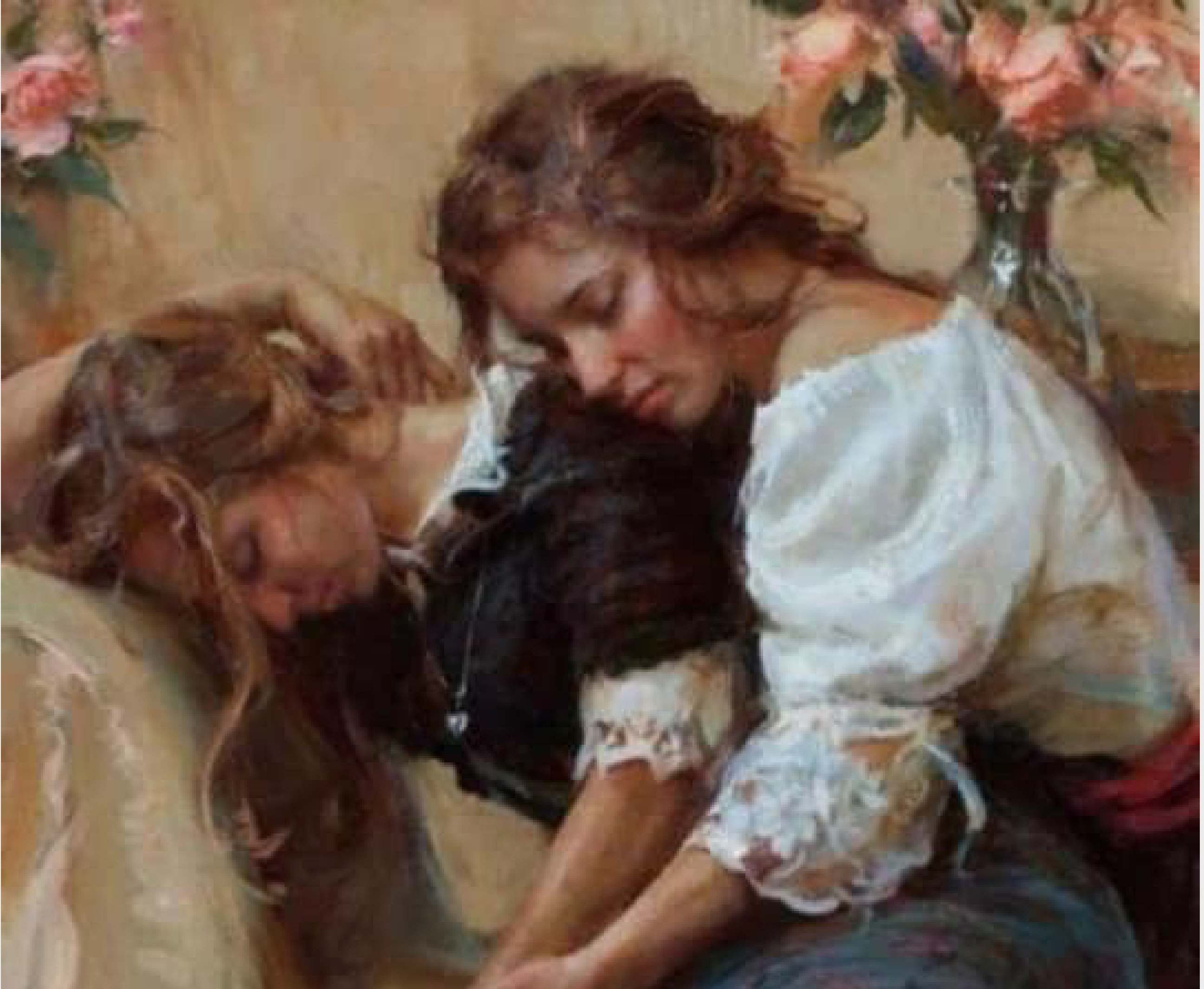Winter, 2021
A Poem
by Zoe Johansen
“Will you...
Hold my hand for a little while?
I don’t need you to save me
No need for you to fix anything
No need for you to hold my pain
But will you simply hold my hand?
I do not need your words
Your thoughts
Nor your shoulders to carry me
But will you sit here for a while with me?
Whilst my tears they stream
Whilst my heart it shatters
Whilst my mind plays tricks on me
Will you with your presence let me know that I am not alone,
whilst I wander into my inner unknown?
For my darkness is mine to face
My pain is mine to feel
And my wounds are mine to heal
But will you sit with me here,
while I courageously show up for it all my dear?
For I am bright because of my darkness
Beautiful because of my brokenness
And strong due to my tender heart
But will you take my hand lovingly,
when I sometimes journey into the dark?
I don’t ask for you to take my darkness away
I don’t expect for you to brighten my day
And I don’t believe that you can mend my pain
But I would surely love if you could sit for a while and hold my hand,
until I find my way out of my shadowland!
So will you...
Hold my hand until I return again?”
Facebook/Sacred Wild Woman Medicine
Artist: Daniel F. Gerhartz
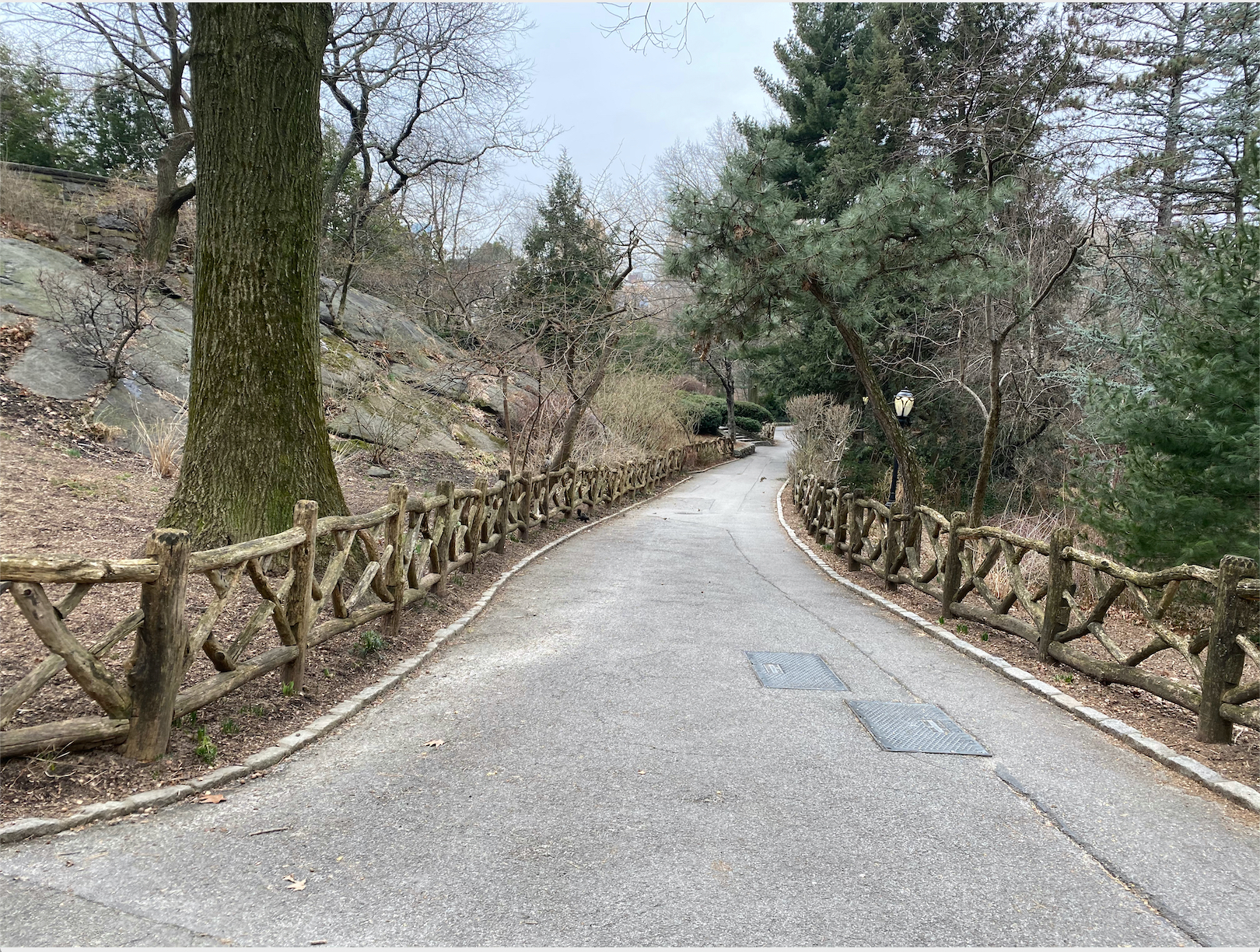
Spring, 2020
Excerpt from: A Trail on the Ground
By Francis Weller
Fear and anxiety readily appear in times like these. Our work is to turn toward these jittery guests and make a place at the table to offer tea and soup, a warm place to rest. Grief may also come knocking as our plans and expectations of normalcy fade into shadows, and we are left with our faith in the world being shaken. This too is a loss worthy of our attention and kindness. Coronavirus reminds us of something inevitable but strangely denied: we are vulnerable, interdependent animals, clinging delicately to our little thread of life. The old Zen phrase, “Not knowing, is most intimate,” rings true. We don’t know what will happen today or tomorrow, and this brings us into the intimate truth of our own tender existence.
So now what? How do we navigate this tidal surge of uncertainty? Our first move could be to re-imagine social distancing as an experience of sanctuary and solitude, and not one of isolation. Social distance is a cold term, lacking any sense of the rich invitation that awaits us when we turn toward our internal worlds. Solitude is a state of hospitality, a welcoming of all that is in need of attention. Solitude offers a ground that is embracing and inclusive. Everything can be made welcome in the broad arms of solitude, even fear. For as long as humans have sought counsel with the sacred, much of it has happened in a space set apart from others. Here, in silence and a nourishing aloneness, we can become receptive to the influence of soul. As Rilke said, “I am too alone in the world, and not alone enough to make every minute holy.” As we shelter in place , may place become a shelter for each of us.
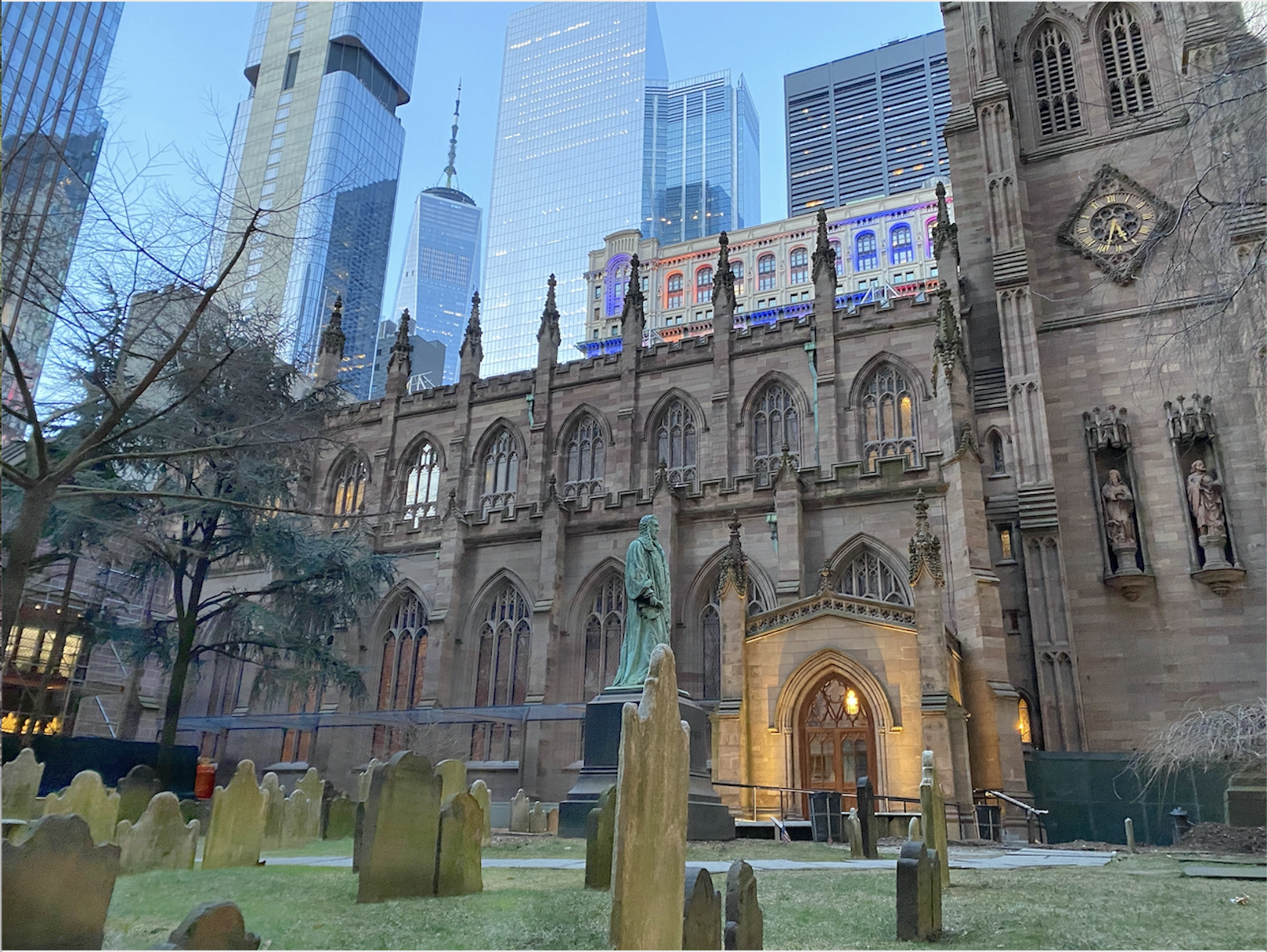
Photo of Trinity Church across the street from Wall St. in Manhatten, NYC
February 24, 2020
The Philosopher’s Stone is Found in Suffering
Most people don't know the story from real life behind Lord Voldemort's search for the sorcerer's stone in Harry Potter. I know I didn't. But the author knew about the legend of the philosopher's stone, a legendary alchemical substance with magical properties, and she put it in her literary magical masterpiece beloved by the world where the story behind her story belonged for so many reasons.
An alchemist is one who believes in, and is on a quest to find, the philosopher’s stone, a substance that transforms base metals such as copper and lead into gold and silver, and that an elixir can be made from that not only heals but causes one to become immortal along with the perfection of the soul. The soul is the mind and self and the perfection involves knowledge of the mind and maturation of the self. It's believed that a person encountering the philosopher’s stone results in that person becoming a dynamic entity and a person who experiencing complete gratification and all happiness.
People believe and operate according to the belief that all the money they could possibly want and immortality would result in happiness. Many were easily swayed to believe in the legends like the philosopher’s stone and dedicated their whole lives to finding it. Everyone, knowingly or unknowingly, has the same the goal lying deep within and is found in the hero’s story which is the basis of all the great stories. Everyone is on the path to reach becoming, doing and having all that we can be, do and have and if they are awoken to it, they can see it and move faster.
The quest for the substance that would change the base metals into precious metals gave the world a body of knowledge that ultimately led to the sciences, metallurgy and pharmacology. But what they originally sought eluded them. The philosopher’s stone remained a mystery that was right there in front of them had they had the deeper eyes to see it.
The stuff that life is made out of is what transforms us into all that we could want. Circumstances and words coming into our minds are the secret process working on us. The more awareness we have of what suffering is and are intellectually working with it, the greater the transformation. Then in the end life becomes more and more perfect in ways we could never imagine.
The Bible gives many clues to the secret to happiness and immortality. We are coal that is refined and becomes diamonds. Revelation speaks of a white stone given to us with our names on it that only we know. This is what the legends have been about. This is the spiritual alchemist's goal. The transformation is something hidden that can only be seen by those who are also undergoing the process. The reason for this is because the mind we are born with can’t see it. It’s a process that wakes up the more advanced part of the human mind that can see what is really going on. There is a path through a world of knowledge concerning reality that is hidden and yet right there.
The seeking of the philosopher’s stone is a journey, an inner journey that is not of the physical world but an underworld or inner world where we become aware of living an inner life along side our outer life. We mystically live Jesus’ cross while we carry our own crosses. The worst and most transforming experience of this is the torment of a dark night of the soul, when you are somehow mystically detached from everyone, all your senses cut off, and you are living the ultimate hero’s story at the same time you live your outer life. It's a hell on Earth for what feels like a never ending eternity to become like Jesus, living your life like God would, and in the end, as you emerge from it, reaching heaven on Earth.
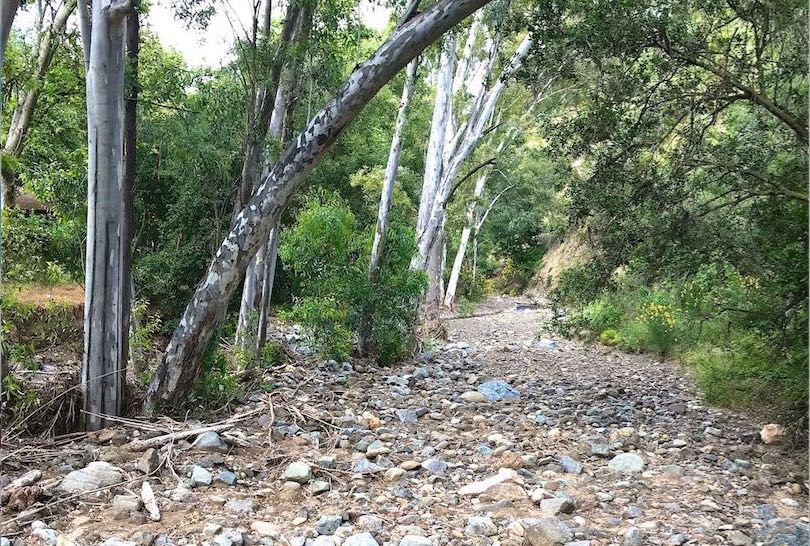
June 20, 2019
"It is finished."
Down through the centuries the greatest minds in theology have struggled to know the meaning of the last thing Jesus said on the cross. Moments before he drew his last breath, and left his suffering life behind, he made the pronouncement, “tetelestai” or “it is finished.”
There are a few ways the Greek word 'tetelestai' is used that can shed light on what Jesus was saying. One of its meanings shows us that Jesus finished everything he needed to do. This is placing a meaning on Jesus’ words that has to do with accomplishing what his suffering life was supposed to, or another way to put it is the completion of Jesus role he played that is part of the larger story that is unfolding behind human history. Part of the meaning behind the “it” in “it is finished” has to do with the bigger picture, what his life did for everyone and everything.
The word 'tetelestai’ is also used for getting to the finish line or reaching the top of a mountain. In other words, his suffering life was also about him personally. This is less talked about, but it is clear from St. Paul’s words, where he said that he was finishing his race, that this suffering life, that shares in the suffering life of Jesus, was a personal race towards what Paul described as a “crown.”
So when Jesus told us to take up our own cross and follow him, our suffering life is a part of both the bigger story, and our own story, just as his was. The questions we might ask then might be something like these. As we suffer like him, what is it that our individual suffering does for us and for the world that needs to be finished? Or, what is the role of our suffering in our story, which is part of the bigger story, that, when it is finished, is going to have something involving a crown at the end of it?
When you go into the deepest of sufferings, a dark night of the soul, your life is stripped away and how you saw life is removed and replaced with a belief system closer to the truth. You learn that it is through suffering, and only suffering, that you are able to see a greater purpose behind everyday life. You don't even have to consciously articulate it and this truth will still become part of who you are and it results in a desire to be a part of something more meaningful. Through suffering human beings experience becoming the kind of person Jesus was, humble and sacrificially loving others.
Our suffering life is a process that changes us, a battle in our minds that purges darkness from us, and a journey where we see reality, the bigger story going on behind this life. When everyone's transforming rocky paths through life are finished, we will find ourselves experiencing the happy ending of the bigger story, an eternity in heaven.
'Tetelestai,' then, also means that what is finished that changes a person, and in turn effects everyone and everything, doesn't end with this life, but goes on forever. We are being made complete through suffering, ready to live in heaven, and along the way we help others get through their race too. Our individual suffering is not about just us. It's part of making heaven on earth.
When Jesus died, what his suffering did for him, and what his ministry, his words, and his cross needed to be for us, was finished. In our suffering, we mystically become one with him, knowingly or unknowingly, and the reality of heaven strengthens us in our darkest times.
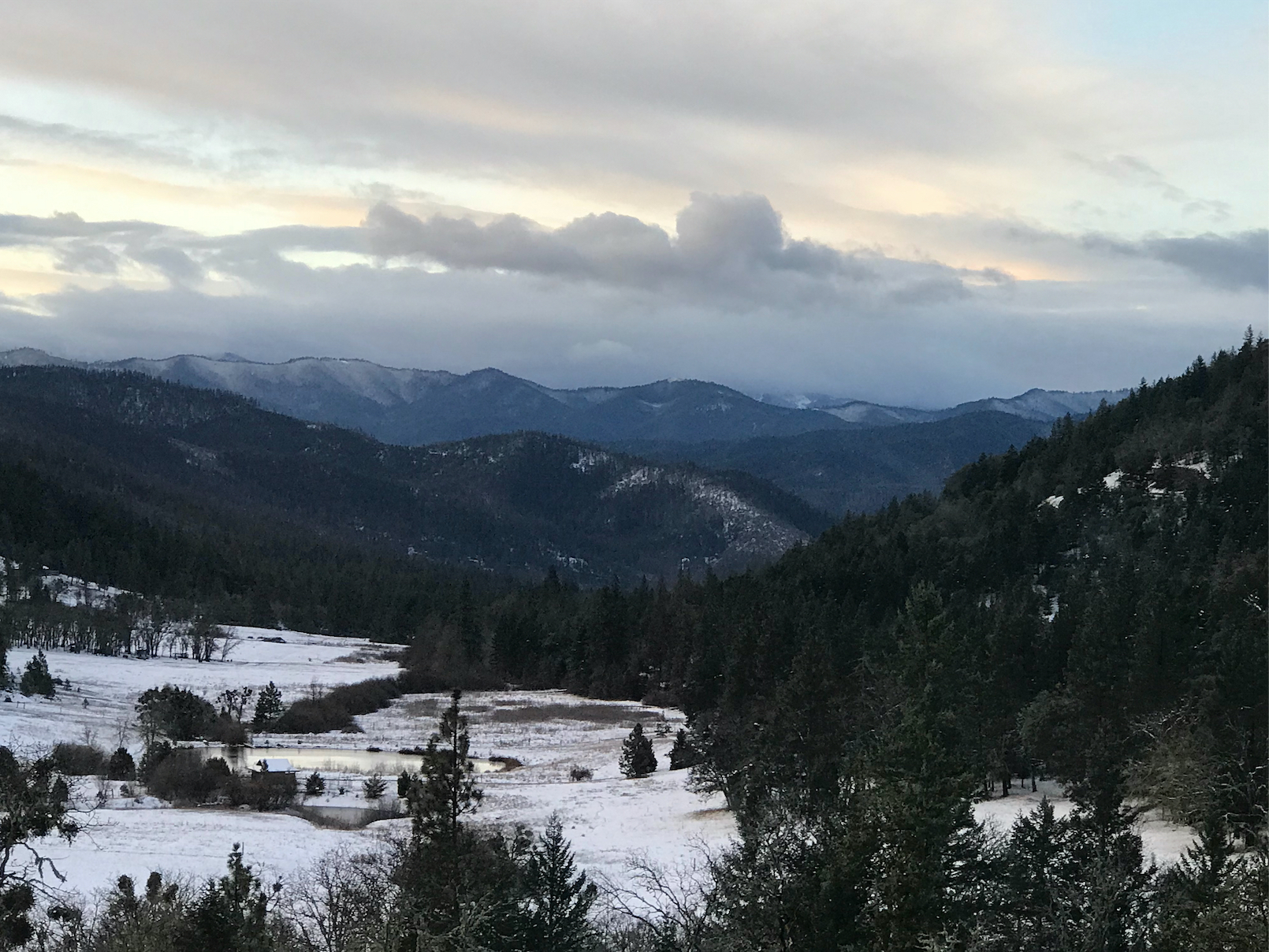
January 12, 2019
Excerpts from
Mitchell's Journey
"That sacred night, my heart suffered a mortal wound. Losing my son, who was a most tender gift, broke me in more ways than I have words to describe."
"What gift(s) can possibly come from such a loss? Surely there are none, one might think. I know nothing so cold and lonely as suffering the loss of a child. Yet, even in that hell, there are gifts and spiritual treasures to be found. Their discovery doesn’t come easily – which comes as no surprise. Nothing of any value in life or the universe comes easily; as with all things, the greater the value, the greater the price."
I have learned not to run from grief, as though it were my emotional enemy. Instead, it has become my tender teacher. I am a student of grief, and I’m learning new things every day. Grief, a gift? Yes, grief can give us the gift of a softened heart, a more empathetic soul, and can teach us the value of a moment – because, in the end, we’ll never have now again.
"Perhaps the greatest gift can be found in the very thing we’re most afraid of. Darkness. The moment I began to realize that it was often in emotional and spiritual darkness that I began to see little flecks of light if I allowed my spiritual eyes to adjust. Each point of light, a tender mercy, a gift from heaven that was always there, but I didn’t have the eyes to see them. Once I recognized those blessings and learned to connect the dots, I started to see I was never alone in the dark and that there is a greater work in progress. I have built a workshop around this very theme – to help people identify their own points of light. It doesn’t matter if you believe in God or gratitude, it’s a profound experience for both the individual and the group.
“I search for light in the darkness, for patterns that offer perspective and peace, and I practice an examined life.”
“There is a kind of darkness one comes to know when they lose a child. And when you walk through that wilderness, you eventually come out the other side a different person. You change. Suddenly, the world is different. The pettiness of people and so much of what consumes society is both pedestrian and trivial. It’s like someone who knows only simple math is trying to tell you how to solve an abstract problem with theoretical physics. Suddenly, their level of understanding is elementary — and you are in graduate school, whether you’re ready or not.”
"...we emerge a new kind of beautiful."
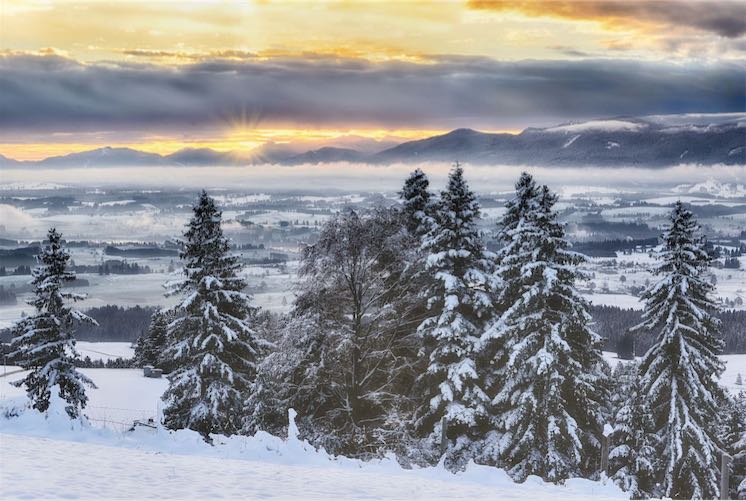
is licensed by Creative Commons
"The dark night of the soul always gives way to the brightness of the noonday light of the presence of God."
November 19, 2018
Excerpt from
Spiritual Depression:
A Dark Night
of the Soul
by R. C. Sproul
The dark night of the soul. This phenomenon describes a malady that the greatest of Christians have suffered from time to time. It was the malady that provoked David to soak his pillow with tears. It was the malady that earned for Jeremiah the sobriquet, “The Weeping Prophet.” It was the malady that so afflicted Martin Luther that his melancholy threatened to destroy him. This is no ordinary fit of depression, but it is a depression that is linked to a crisis of faith, a crisis that comes when one senses the absence of God or gives rise to a feeling of abandonment by Him.
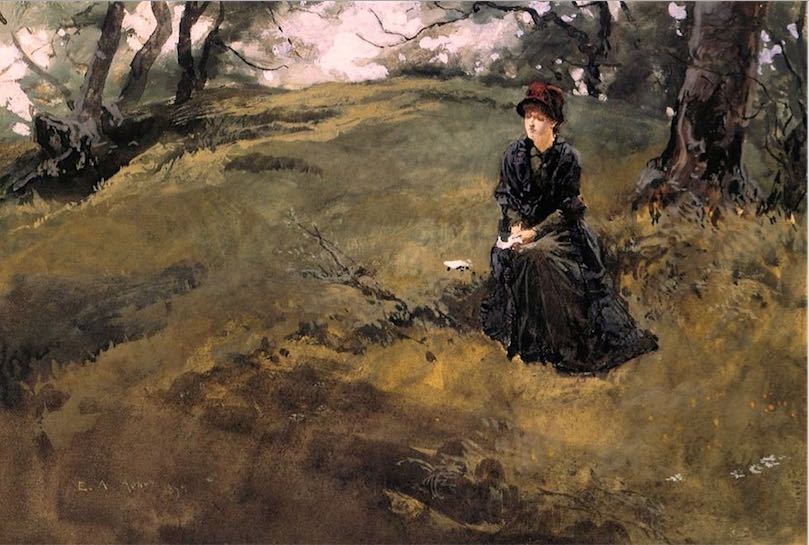
Photo of Henrietta Lee by Jim Surkamp
is licensed by Creative Commons
“A myth is something that never was but that is always happening. It is the DNA code of the human psyche. It is available for one generation, and again, in a different twist, for another. It has multiple, myriad facets. It drops into a culture like a crystal seed in a supersaturated solution, and then it blooms and blossoms. Einstein said, ‘If you want to make your children brilliant, tell them fairy tales. If you want to make them more brilliant, tell them more fairy tales.’”June 5, 2018
Notes: Possible Human,
Possible World
Interview With Jean Houston
“Wounding is critical to every great myth. Christ must have his cross…”
“Most of us have somewhere between 5 to 100 times the amount of shear human experience of our ancestors of 100 years ago and this has rendered us very wounded.” “But we’ve become incredibly available and vulnerable to each other in our wounding, our sympathies, our empathies. Through the wounding of the outer shell of ego we are now reaching out, making connections, networking, friendships, transformational friendships between men and women, between countries, between cultures. So the depths are rising everywhere.”
“In all great stories wounding was the entrance to the sacred. It is through wounding that the depths could arise….at the same time as all the shadows.”
“Everyone is living in the state of divine discontent and extraordinary outreach to the larger story.”
We have this extraordinary interdependent world. And we have access to the understanding of human potential. We’re living in the golden age of who and what we can be. We have access to all the knowledge that has been accumulated in all the cultures throughout the history of humanity. And sufficient crisis and complexity, and radical need to make use of this knowledge.
We’re in a time in which literally all systems are in transition, everything has shaken down into chaos, everything is breaking down, governments, politics, economics, religions, relationships. We are probably in the greatest shaking up in human history. The world is too complex, who and what we are in human history, for traditional basics.
There is an incredible yearning for a pattern that makes sense. Each of the cultures have something unique to contribute to what it means to be human. There is a yearning to be who we can be. Myths are rising all over the world and applying this pattern is bringing out the potential in different areas of the culture like education, economics, health and their social systems.
We’re being given access, and more and more, to everybody’s story, to everybody’s myth. And there is a sense that we are all in this together in perhaps the greatest moment in human history when we are recreating earth’s story.
Notes: Why Story
Is Essential to
Social Transformation
Link to full interview: https://www.youtube.com/watch?v=ZL4zsmtWpwQ
"Story is the juice that inspires our unfolding. Without story you would have no civilization, no morality, no inspiration. You wouldn’t have much of anything. When cultures lose their dominant stories, then tend to lose themselves. America is wandering around quite confused. When we look at the kinds of stories on television they may have a slight beginning, middle and end but the hero’s journey is not there. The depth of story is rarely there. The point of story is, I believe, one of the organic structures of the human psyche. In the thousands of research subjects that I have had I have found that everybody is filled with stories. When story closes down because of lack of interest or excess trauma or whatever, or when it becomes too narrow life itself narrows. Story is essential to our human becoming and our human health.
"The old story, what did it do? It told us who we were, where we came from, it justified our existence, it told us how to train our children, what to do with our criminals, the meaning of life and death. It didn’t make us necessarily better. But what it did do was it gave us an organized form in which to understand our lives. And then it died.
"It began dying in Europe in the 13th and 14th centuries with the horrible plagues wiped out 70 percent of the population of Europe. Suddenly everything was up for grabs. And everything shifted. The serfdom didn’t work. The castles were knocked down by the new cannons. People were lost. But with that lostness came the seeking of a new story.
"Every few hundred years we enter into phenomenal state of lostness which we are in now. And we try to fill it up with one thing or another. What is the big change in the history of our story? It's the rise of women all over the world to full partnership with men in the whole domaine of human affairs. Huge. And all over the world it's shifting everything."
Link to full interview: https://www.youtube.com/watch?v=etM2L3ac3a8
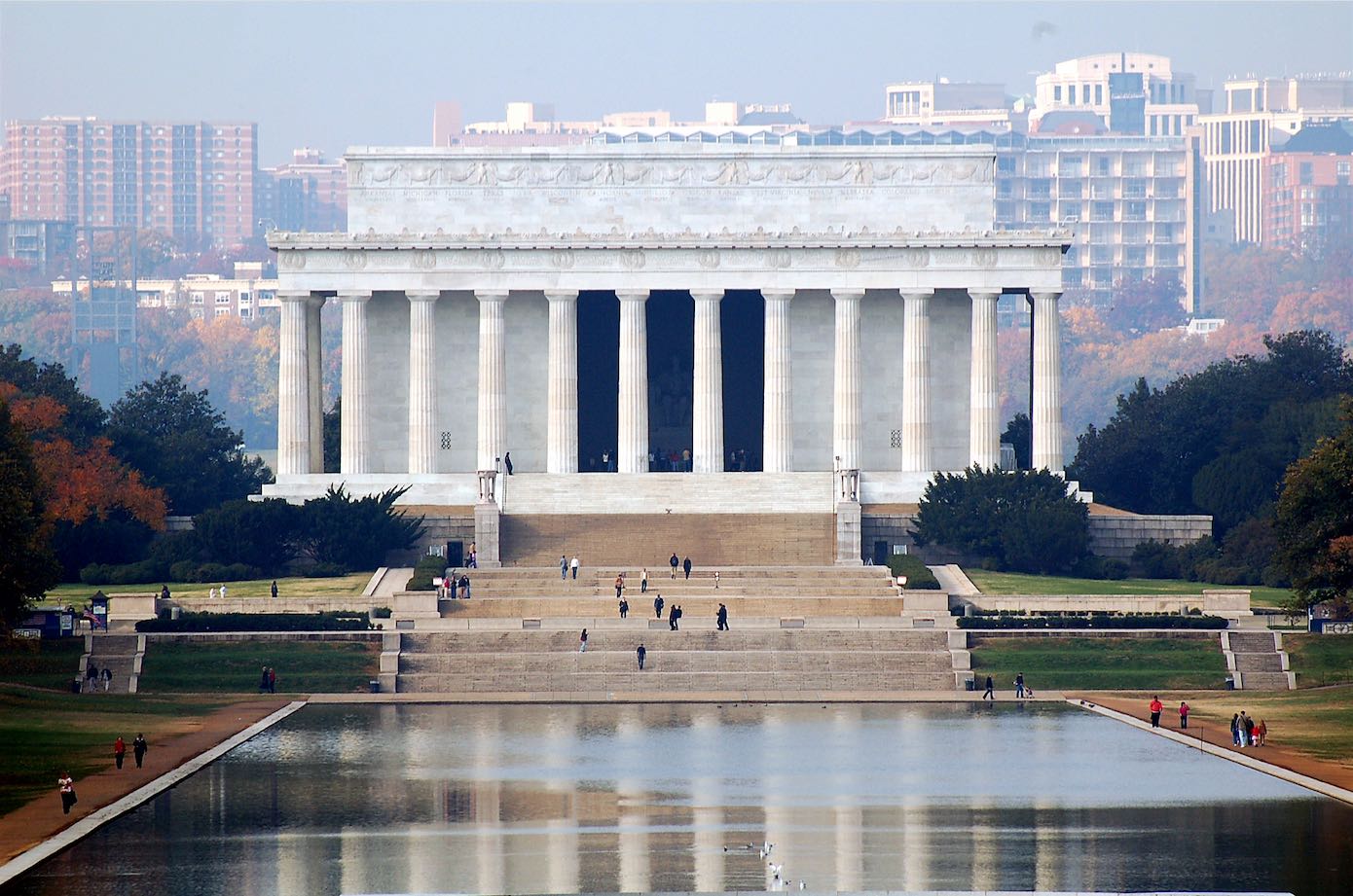
Photo of Lincoln Memorial by John H Gray
is licensed by Creative Commons
December 15, 2017
Excerpt from 'A Dark Night of the Soul'
by Cassie Crow
A short excerpt along with a link to this excellent article is being featured in the blog.
"The dark night of the soul occurs in the times where we endure extreme hardships—the kind that shakes your core being, your beliefs, and your sense of identity. It’s the blockbuster movie moment when the superhero is in deep inner crisis and must summon extraordinary thinking to rise out of pain, fear, and doubt.
Abraham Lincoln wrote of his dark night, “If there’s a worse place than hell, I’m in it,” as he led the US through the Civil War while mourning the death of one his sons. Mahatma Gandhi, Eleanor Roosevelt, Sojourner Truth, and many other leaders endured many a dark night.
It’s in this darkness that greatness is born. What made these leaders great was that they used the power of extraordinary thinking to not merely survive catastrophe but they reshaped their beliefs, rose to the occasion and created incredible results for themselves and others."
Link to full article on ProductiveLearning.com with workshop information
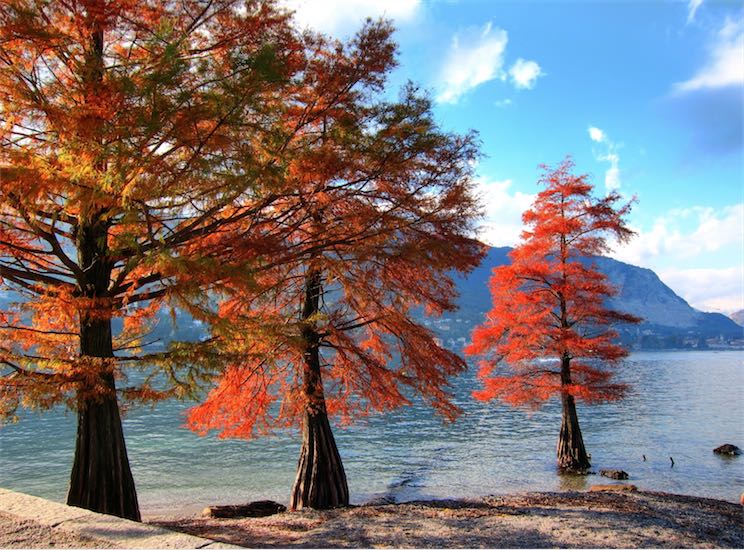
Photo of Lago Maggiore by Gabriele Quaglia
is licensed by Creative Commons
March 2, 2015
Feeling Cast Away
Carl Jung wrote that a person “must be alone if he is to find out what it is that supports him when he can no longer support himself. Only this experience can give him an indestructible foundation.”
The film Cast Away illustrates how I felt when in my 3-year long Dark Night of the Soul, with my sense of isolation, powerlessness, helplessness, disorientation and inability to have any sense of control. With a dash of paranoia thrown in.
At some point, the pain was so great, so acute, that I asked, either out-loud or in my head (I’m not sure which): “What is this place?” A voice answered (I haven’t heard voices in my head either before or since): “It’s your depths.” Something clicked in me. Wanting to live in and from my depths had always been my passion.
I got on board. I understood this process could be fruitful, productive, enriching — in ways that I couldn’t possibly imagine then, but came to fully know. And eventually came to be grateful for.
I read the book Loneliness by Clark Moustakas, which taught me that coming to terms with my aloneness and loneliness in the Dark Night was a noble task.
I used this quote from Eat Pray Love by Liz Gilbert as my mission statement: “When I get lonely these days, I think: So BE lonely, Liz. Learn your way around loneliness. Make a map of it. Sit with it, for once in your life. Welcome to the human experience. But never again use another person's body or emotions as a scratching post for your own unfulfilled yearnings.”
Here is a scene from the movie Cast Away :
https://www.youtube.com/watch?v=GRuh-35RSQI
The line: “Keep breathing. You never know what the tide will bring in” became my mantra.
~ Marla Estes
The School of the Examined Life
See also Marla Estes' article on this website, "Making the Unconscious Conscious: Embracing the Dark Night of the Soul"
